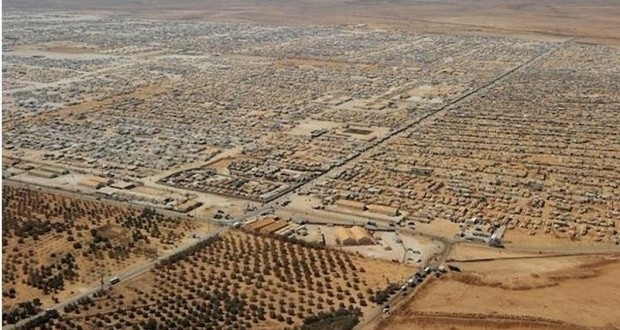UN High Commission for Refugees (UNHCR) spokesperson Dima Hamdan confirmed that 90 percent of Syrian refugees in Zaatari camp have been living without electricity for three months.
Refugees inside the camp confirm that electricity has been cut following the Huda storm, which hit the region three months ago. Refugees have been using small generators for light inside their caravans and to charge mobile phones.
Refugees suffer from poor quality and high prices of generators, not to mention maintenance fees, which sometimes equal the price of the generator itself.
Residents find it difficult to secure the necessary gasoline to run the generators, after Zaatari administrators prohibited the transportation of gasoline into the camp, forcing people to send their children (who sneak through the barbed-wire fence) to buy it from the nearby station or from the black market in the camp – often at double the price.
A spokesman of Irbid Electricity Company, Hisham Hijazi, explains that the outage is caused by repeated failures in the transformers that supply electricity to the camp, where UNHCR has requested electricity be cut in order to avoid damaging these transformers.
Hamdan claims the UNHCR is unaware of when the Jordanian government will approve the rebuilding of the camp’s electricity infrastructure, although finding a solution to the camp’s power problem is currently a UNHCR priority.
Translated and edited by The Syrian Observer


